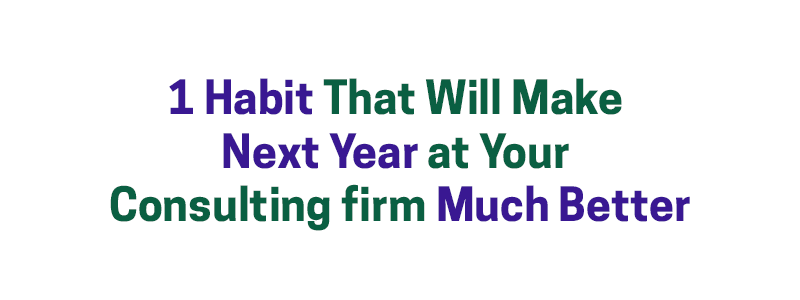
New Year’s is a common time to establish new habits. The calendar demarcation is great psychological trigger to adopt healthy new behaviors like working out every day, avoiding email until afternoon, and waiting until after breakfast for the first cookie of the day. Two keys to making new habits stick: Of course, being the smart, … Continued
The post 1 Habit That Will Make Next Year at Your Consulting Firm Much Better appeared first on David A. Fields Consulting Group.

